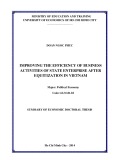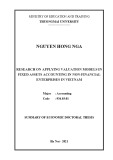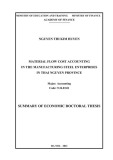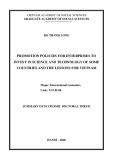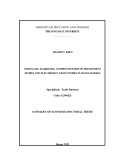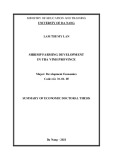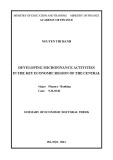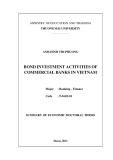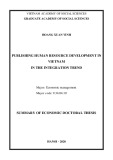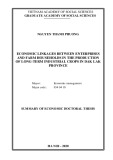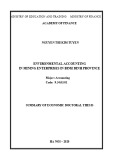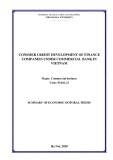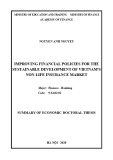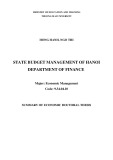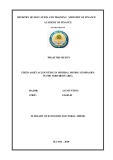
HEADING
1. THE URGENCY OF THE SUBJECT
Consumer credit for decades has been provided by two main actors in the financial market to
customers, including finance companies and commercial banks. Although both entities are providing credit, the
customer segment has a clear difference, in which commercial banks focus on providing credit for standard
customers who meet loan conditions of the bank, while the financial institutions mainly approach segments of
customers that are difficult to access loans from commercial banks, also known as subprime customers. Thanks
to the clear customer classification between finance companies and commercial banks, it has led to differences
in business activities of the two lenders and benefits for customers. In addition to the benefits of credit for
customers, lenders and the economy, excessive credit growth, lack of strategy and uncontrolled safety in the
legal framework can cause crises. Economic crisis on a national and global scale. The clear evidence is that the
global economic crisis of 2008-2009 originated from North America originated from rampant under-standard
credit development. This is also a lesson for emerging markets with a lot of room for developing credit and at
risk of hot credit growth, requiring strict control and safe and sustainable credit growth solutions.
Retail banking activities in Vietnam have been formed and developed strongly along with the
development of the commercial banking system. Standard consumer credits for individual customers have
been widely deployed by commercial banks, becoming a profitable activity for commercial banks in the
context of difficult credit growth from enterprises. With the structure of the golden population (69% of the
population is of working age), the average income and living standards are increasing, the consumption
behaviors of the people change in a positive direction, the credit market in Vietnam is growing. It has grown
rapidly in the past 10 years and is expected to continue to grow in the future, with an average growth rate of
about 20% per year until 2025. In fact, Vietnamese commercial banks are having many advantages when
participating in the consumer credit market segment and seeking new development opportunities to enhance
the competitiveness and position of the market.
Along with the policy of the Government and the State Bank on strengthening consumer credit
activities of domestic financel companies and restricting the license to open new finance companies in
Vietnam, many commercial banks are looking taking ownership of a finance companies to deploy credit
operations for subordinate customers is a fertile land to maximize the advantages of capital, network,
management experience etc and contribute to achieving strategic targets of commercial banks in the period of
2020-2025. Therefore, the period 2017-2019 witnessed a series of mergers between commercial banks and
finance companies, 02 finance companies under commercial banks including MCredit and HD Saison officially
came into operation. In 2017 and 2018, some commercial banks completed the procedures for acquiring
financel companies in 2018-2019, such as Southeast Asia Commercial Joint Stock Bank and Tien Phong
Commercial Joint Stock Bank. At the same time, many other commercial banks are also preparing to submit to
the State Bank on the acquisition of finance companies, showing the increasing competition pressure in the
consumer credit market.
In the first phase of credit activity implementation, a number of advantages help finance companies
under commercial banks compete with independent finance companies stemming from the support of the
parent commercial banks. However, the finance companies also face challenging challenges from: (i)
Pressure to transform the digital platform business model to the 4.0 trend; (ii) Competition is increasingly
fierce in the field of the financel companies with the accession of Fintech companies, especially the form of
loan through APP has flourished because many competitors from China and Indonesia have moved to
Vietnam after the collapse. disruption of the peer lending market; iii) The legal framework is increasingly
completed in the direction of strictly controlling the operations of the finance companies and restricting
unsecured cash loans according to the schedule; and (iv) Regulations on restricting credit growth of the State
Bank for many years.
Owned by leading domestic commercial banks in Vietnam, the finance companies are expected to
actively contribute to the policy of restricting black credit, contributing to lending transactions to people. the
integration of legal transactions, responsible lending activities with customers and the community, preserving
and strengthening the brand reputation of the commercial banks. The finance companies need to determine
which business model is appropriate, which solutions are needed to exist and develop properly, balancing
profit and safety goals, prestige in relation with the general strategy of the parent commercial banks, well
implementing the policy of restricting black credit, protecting the brand reputation of the parent commercial






